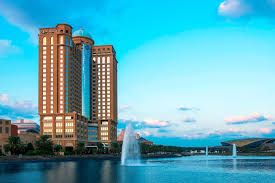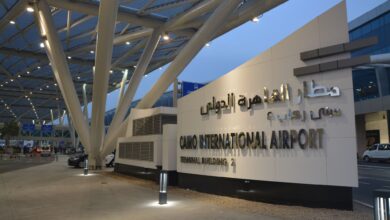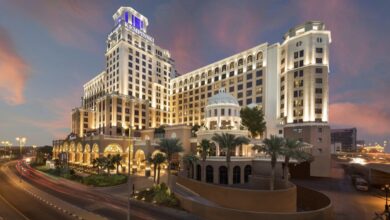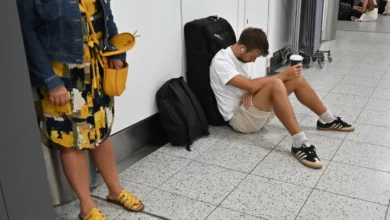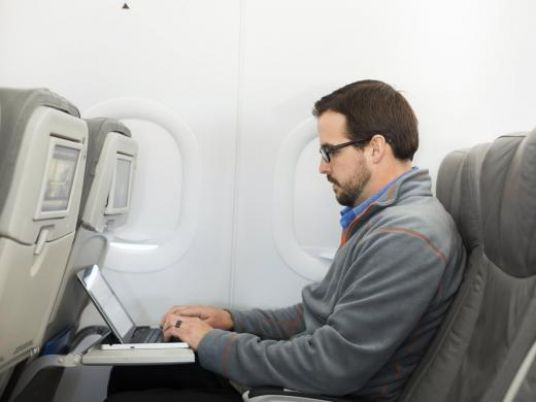
With a roster of alluring destinations and five-star hotels, going on a business trip can seem like a whirlwind of high-powered glamor on the surface.
But for people constantly traveling for work, the reality is often quite different.
Check-in queues, flight delays and lonely dinners make up a large part of the business traveler lifestyle, where the perks of traversing the globe for meetings in Paris and Tokyo come with a physical and emotional cost.
"It is a love-hate relationship," says Brian Whitney, an executive at NCR who spends nearly half the year on the road.
"There is a glamor to it, there's an achievement, but the toll that takes on your personal and professional and marital life is significant," he adds.
Sick and sad travelers
A new UK study has tried to lift the lid on the less alluring aspects of business travel and debunk the glamorous narrative that often accompanies it.
Titled "A Darker Side of Hypermobility," the paper examines the physiological, psychological, emotional and social costs traveling workers face.
"If you've seen someone who's going to Sri Lanka for work and has posted a beautiful picture of it on Instagram, you've sat at your desk and thought to yourself: 'Wouldn't it be fantastic if I could travel for work as well,'" says Scott Cohen, one of the authors of the study and deputy director of research in the school of hospitality and tourism management at the University of Surrey.
"That's the glamorized side that's entirely missing out these darker aspects," he adds.
Cohen says that for a portion of the workforce, the constantly mobile lifestyle is creating a silent epidemic of sick and sad travelers.
"If you fly just 85,000 miles a year, which is the equivalent of flying return from New York to Tokyo seven times a year, you've already exceeded the safe limit for radiation exposure," he adds.
"There's a disruption to the circadian rhythm you get through jet lag. And that has chronic effects when it builds over time."
Dinner for one
Medical experts say those who travel frequently for work are less likely to eat well and exercise, while there is a well-documented risk of deep vein thrombosis on long flights.
However, it's the emotional isolation of spending a lot of time away from their families and community that many business travelers find the hardest to deal with.
"It's impossible not to feel lonely on the road," says Brian Whitney, who admits that feelings of isolation and depression often creep in.
"You've got these massive peaks and valleys — great meetings, great wins and great experiences, and the few times you can get away you're seeing amazing places, but then you realize you've got virtually nobody to share it with."
Whitney has accrued 1.6 million miles on Delta alone, and has already been to Europe, Asia, the Middle East and Australia this year.
"I have a six-year-old and we've got to the point now that she looks at me and tells me 'I don't want you to go,'" he says.
The executive's dizzying schedule means that his wife has to run their household as a de-facto single parent.
"When I go on the road and I'm in Dubai or Adelaide, there's nobody else to drive carpool, handle ice-skating or a temper tantrum. There's nobody else to handle the bills, she has to do it all alone," says Whitney.
Addictive lifestyle
So with technological advances that now allow people to hold video conferences with colleagues thousands of miles away, why is business travel still so prevalent in certain industries?
For some employees the incentive is monetary — it comes as part and parcel of their job and they may even fear losing work if they refuse. But for a section of business people the lifestyle is addictive.
The advent of social media has created avenues for public one-upmanship, where travelers can log their destinations on Facebook and compete with their peers on how many places they've been to.
And with various airline and hotel loyalty programs enticing travelers in hot pursuit of collecting points, each new tier reached can seem like an achievement.
"They've gamified the system to where you really want to earn that badge, you want to earn that diamond medallion level," says Whitney.
So how long does he envisage living the transient life of a business traveler?
"As long as they let me do it," he says.
"We do this to get the business. We're out there to make the sales and do the deals and meet with our clients, but we also don't mind doing it.
"I get the same sense when I walk into a meeting room as I do when I walk into an airport — I think OK I'm in my environment. I'm in my element."

